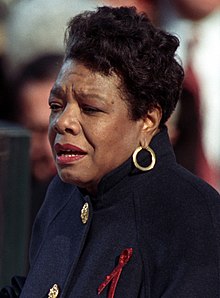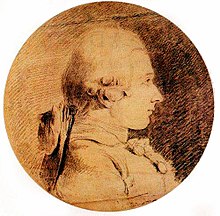Crazier Than Fiction: 8 Writers Who Lived a More Exciting Life Than You
If you've ever taken a creative writing class, it's likely that you've encountered the adage: "Write what you know." Its origins are unclear, but it's most often attributed to Hemingway—a suggestion that writers should use their experiences as source material for their work. Still, many writers choose to reject this advice, leading quiet, hermetic lives, typing away in the hours when their friends are out drinking. The same does not apply to the eight on this list. They took that advice and ran with it. Some of them barreled headfirst into lives of opulence and indulgence, while others wound up in prisons and insane asylums. In either case, we're thankful they did. It's made for great reading.
Henry Valentine Miller.
1. Henry Miller
Henry Miller moved to Paris in the year 1928, following his wife, June Mansfield, and her lover, a female artist name Marion. Until their departure, the three of them had shared an apartment in New York. Miller was hurt by their decision, but by the time he arrived in Paris, June's relationship with Marion had deteriorated. Miller's wife returned to him, and Marion committed suicide shortly after.
Until his death at age of 88, Miller's life was filled with complicated relationships and countless sexual escapades. He was once quoted as saying, "Sex is one of the nine reasons for reincarnation. The other eight are unimportant." His novels, banned in the United States for much of his lifetime, documented these encounters in poetic and graphic prose. The undeniable originality of his books earned him an underground following in the States, causing fans to smuggle them in.
During his years in Paris he was virtually destitute but always happy: "I have no money, no resources, no hopes. I am the happiest man alive." He returned to New York in 1940, then moved to California in '42, where he continued to write and live out his days.
Oscar Wilde, looking bored with you.
2. Oscar Wilde
During his lifetime, Oscar Wilde was better known for his flamboyant personality than for his writing. He dressed extravagantly and was, without fail, the wittiest person in every room he ever entered. Unsurprisingly, these qualities made him some enemies.
Following a stellar academic career, he moved from his native Dublin to London. He moved easily through high society, rubbing elbows with members of fashionable social circles. He eventually left to travel across the United States and Canada, giving lectures on the philosophy of aestheticism.
In 1895, when his play The Importance of Being Earnest was being performed in London, he was accused (correctly) by the Marquess of Queensberry of having gay relations with a number of men. He tried to sue for libel, but his plan backfired. Investigators uncovered that he had, in fact, been with men sexually, and arrested him for gross indecency.
After two years of hard labour, he moved to France, wrote one last work, The Ballad of Reading Gaol, and died destitute in Paris at the age of 46.
Nin at a reading in Berkeley, CA.
3. Anais Nin
Like Henry Miller (with whom she had a passionate and well-chronicled love affair), Nin's life was, in many ways, a deeply sexual one. As a writer she is best known for her diaries—exquisitely written documents that she began working on in her youth. She's also known as one of the finest writers of female erotica.
Born in France to Cuban parents, she spent most of her childhood in Europe and then New York. She married her first husband at 20 in Havana, Cuba, then moved to Paris the following year.
The list of her literary lovers is long. Very long. Here's a snapshot: Henry Miller, John Steinbeck, Antonin Artaud, Edmund Wilson, Gore Vidal, James Agee, James Leo Herlihy, Lawrence Durrell, Otto Rank.. etc. At one point, she had a husband in both New York in Los Angeles. On the East Coast, she was known as Anais Guiler, and on the West Coast, Anais Pole. Of the time, she is quoted as saying: "I tell so many lies I have to write them down and keep them in a lie box so I can keep them straight."
Bowles in Tangier.
4. Paul Bowles
Norman Mailer once wrote that, "Paul Bowles opened the world of Hip. He let in the murder, the drugs, the incest, the death of the Square, the call of the orgy, the end of civilization…" High praise from one of the best cultural pontificators of the 20th century.
After spending time in Paris with Gertrude Stein and the rest of its famous 1920s expat community, Bowles decided, on Stein's recommendation, to take a short trip to Tangier. He was mesmerized by the Moroccan city, taken by its beauty and intensity. He decided that he would eventually set a novel there.
He returned to New York, where he had a successful career as a composer. He worked with people like Orson Welles and married an author and playwright named Jane Auer. His life was, by any measure, exceptional. But he couldn't shake his memories of Tangier.
In 1947, he returned to the tip of North Africa. He stayed for the next 52 years. During this time he wrote novels and short stories, immersed himself in the lifestyle of the city, and became a symbol of American expat society.
Angelou reciting a poem at Bill Clinton's inauguration.
5. Maya Angelou
It seems impossible that a single person could have accomplished all that Maya Angelou did in her 86 years. Of Angelou, The Guardian writer Gary Younge wrote that, "To know her life story is to simultaneously wonder what on earth you have been doing with your own life and feel glad that you didn't have to go through half the things she has."
Let's list a few of the jobs she held in her early years: pimp, prostitute, fry cook, nightclub dancer and performer, journalist covering Egypt and Ghana, cast member of Porgy and Bess, and the first black female streetcar conductor in San Francisco. She was an active member of the Civil Rights movement, and was close with both MLK and Malcolm X near the time of their assassinations. Oprah considers her a mentor, and in 1993 she recited her poem, "On the Pulse of Morning," during Bill Clinton’s inauguration. Her resume goes on, but you get the idea.
The Marquis at the tender age of 19.
6. Marquis de Sade
On Easter Sunday, 1786, the Marquis ran into a beggar named Rose Keller. He found her asking for alms just beyond the walls of his chateau in Lacoste, France. He promised her compensation in exchange for work, but failed to specify the type. An hour later, Keller found herself strapped to a divan, naked, being whipped by the Marquis. She escaped by climbing out of a second story window and ran back to town.
When tallying the heinous acts committed by the Marquis de Sade, this anecdote is rather standard. The word "sadism" is literally derived from his name. Because of his wealth and connections, he was able to take his sexual carnival on the road, and was usually forced to pack up when the police were notified by a terrified servant who stumbled into a room she wasn't supposed to.
In 1777, he was lured to Paris under the false pretense that his mother was gravely ill—she was already dead—and he was locked in the Bastille. Many of his works were published from prisons and insane asylums, where he spent a total of 32 years of his life.
Thompson (left) with Oscar Zeta Acosta, his attorney and a fellow novelist.
7. Hunter S. Thompson
You knew it was coming. We initially resisted the idea of adding Thompson to the list, afraid that he was too obvious, but after reviewing his credentials, we realized we had no choice.
Thompson never graduated from high school. During the time of his final exams, he was locked away in the local jail as an accessory to robbery. He enrolled in the Air Force a week after his release, only to be honorably discharged two years later, because, according to a colonel: "Sometimes his rebel and and superior attitude seems to rub off on other airmen staff members."
He spent years bouncing around the United States and South America, working as a writer, editor, and stringer for various newspapers. He often lied about his experience, but his talent was so great that no one really questioned him. When he returned to the U.S., he spent a year riding motorcycles with the Hells Angels. Hell's Angels: The Strange and Terrible Saga of the Outlaw Motorcycle Gangs, a critical and explosive book chronicling that year, launched him into a legitimate journalism career.
His penchant for drug and alcohol consumption was prodigious: "I hate to advocate drugs, alcohol, violence, or insanity to anyone, but they've always worked for me." After a lifetime of using, he committed suicide at his Woody Creek, Colorado home in 2005. Reflecting on Thompson, the novelist Hari Kunzru observed that he was, "...one who often makes himself ugly to expose the ugliness he sees around him."
Salman Rushdie speaking at the 2016 Hay Festival.
8. Salman Rushdie
After the 1988 publication of Rushdie's fourth novel, The Satanic Verses, Ayatollah Khomeini, the Supreme Leader of Iran, issued a fatwa—a ruling by an Islamic authority—calling for the assassination of Rushdie for irreverent depictions of Muhammad. Protests followed, and Rushdie went into hiding. The governments of Iran and the United Kingdom (Rushdie's then-home) broke diplomatic relations. A failed attempt to carry out the fatwa resulted in multiple deaths when a bomb prematurely exploded in a London bookstore.
A decade later, the Iranian government, headed by Mohammad Khatami, said that it would, "neither support nor hinder assassination operations on Rushdie." Still, a group of Iranian hardliners have maintained a bounty on his head, which was bumped up to $4 million in 2016. In spite this, he's lived a rather public life. He was knighted in 2007, made cameos on television shows, has given interviews and lectures at colleges, and is even the current Distinguished Writer in Residence at NYU.







